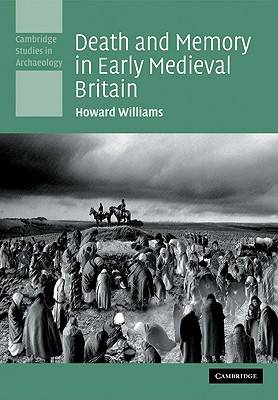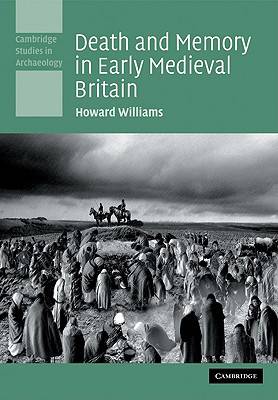
- Afhalen na 1 uur in een winkel met voorraad
- Gratis thuislevering in België vanaf € 30
- Ruim aanbod met 7 miljoen producten
- Afhalen na 1 uur in een winkel met voorraad
- Gratis thuislevering in België vanaf € 30
- Ruim aanbod met 7 miljoen producten
Zoeken
Omschrijving
How were the dead remembered in early medieval Britain? Originally published in 2006, this innovative study demonstrates how perceptions of the past and the dead, and hence social identities, were constructed through mortuary practices and commemoration between c. 400-1100 AD. Drawing on archaeological evidence from across Britain, including archaeological discoveries, Howard Williams presents a fresh interpretation of the significance of portable artefacts, the body, structures, monuments and landscapes in early medieval mortuary practices. He argues that materials and spaces were used in ritual performances that served as 'technologies of remembrance', practices that created shared 'social' memories intended to link past, present and future. Through the deployment of material culture, early medieval societies were therefore selectively remembering and forgetting their ancestors and their history. Throwing light on an important aspect of medieval society, this book is essential reading for archaeologists and historians with an interest in the early medieval period.
Specificaties
Betrokkenen
- Auteur(s):
- Uitgeverij:
Inhoud
- Aantal bladzijden:
- 272
- Taal:
- Engels
- Reeks:
Eigenschappen
- Productcode (EAN):
- 9780521142250
- Verschijningsdatum:
- 1/04/2010
- Uitvoering:
- Paperback
- Formaat:
- Trade paperback (VS)
- Afmetingen:
- 170 mm x 244 mm
- Gewicht:
- 435 g

Alleen bij Standaard Boekhandel
+ 100 punten op je klantenkaart van Standaard Boekhandel
Beoordelingen
We publiceren alleen reviews die voldoen aan de voorwaarden voor reviews. Bekijk onze voorwaarden voor reviews.











